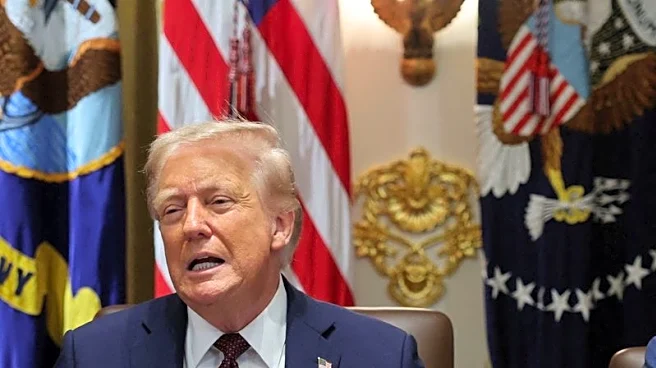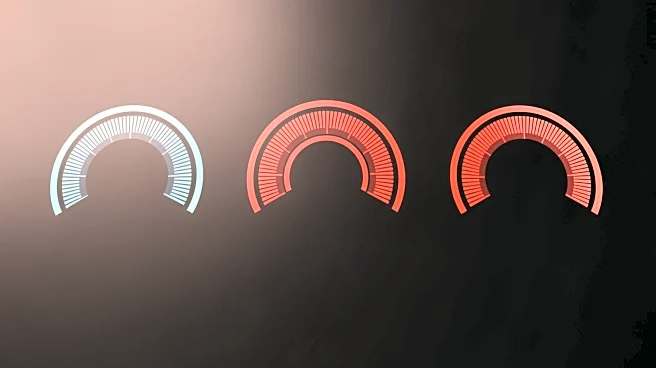By Trevor Hunnicutt and Jeff Mason
WASHINGTON (Reuters) -U.S. President Donald Trump is pushing for more control over everything the federal government and its agencies do, and a string of firings will
test how far he might be able to take his quest.
Over three days this week, the Republican president moved to terminate Federal Reserve Governor Lisa Cook, Centers for Disease Control and Prevention director Susan Monarez and railroad regulator Robert Primus.
The actions underscored Trump's desire for influence in sectors normally seen as independent from overt political control and could have major implications for financial markets, health policy and public trust in institutions.
The firings could undermine confidence in agencies that are meant to inform the private sector and provide expertise for the president while operating above any one party's politics, according to experts in presidential authority. If allowed to stand, the independence of other institutions may also be at risk.
"It is something that is novel, in a bad way, and represents a significant power grab by the president," said Max Stier, president of the Partnership for Public Service, an advocacy group. "The president has a lot of power, but there are limits... You have a president today that does not recognize any of those limits."
White House officials said the president was acting within his legal authority to deliver on the agenda he was elected to enact. The administration has said Monarez and Primus were dismissed because they did not align with Trump's agenda, and it wanted to focus the CDC on its core mission.
Monarez, sworn into her job less than a month ago, had resisted changes to vaccine policy that she believed contradicted scientific evidence, a close associate said. Primus' social media included posts that could be read as critical of Trump administration policies unrelated to railways.
The administration has accused Cook of mortgage fraud, which she denies. But Trump made clear another motivation for her removal, telling a Cabinet meeting on Tuesday that he would soon have a majority of loyalists on the Fed's board of governors, which helps set the interest rates that Trump wants lowered.
Cook has sued Trump and the Fed, saying an unsubstantiated claim of mortgage fraud does not provide legal authority for her removal. Monarez had refused to resign. Primus said his termination was legally invalid.
Most U.S. presidents steer clear of commenting about the Federal Reserve, let alone influencing monetary policy or knocking members off the board of governors. Independent central banks around the world are seen as key to maintaining a stable global economy, but Trump has often challenged norms.
"If this ... removal at the Federal Reserve is allowed to stand, then all of the rest of the dominoes are going to fall," said Jane Manners, associate professor at the Fordham School of Law and an expert on presidential powers. "We will no longer have an administrative state in which you have decision makers who are insulated from naked political pressure."
EXTENDING POWER
During his seven months in office, Trump has been aggressive in his effort to dominate not only the federal government but the public life of the nation.
On Tuesday, he joined angry customers in publicly appealing for the chain restaurant Cracker Barrel to drop a planned logo redesign, which it did later that day. He bypassed longtime Republican orthodoxy in negotiating deals for the U.S. government to take a 10% stake in the computer chip maker Intel and capture some revenue from its rival Nvidia's sales. He is seeking new authority over private universities, using their public funding as leverage.
The White House maintains Trump's overall approach is appropriate and defended the firings.
"If you're doing your job well, and if you are executing on the vision and the promises that the president made to the public who elected him back to this office, then you should have no fear about your job," White House spokeswoman Karoline Leavitt told reporters on Thursday.
Musing this week about the possibility of deploying troops to patrol Democratic-controlled Chicago, Trump claimed he had "the right to do anything I want to do."
Unlike ambitious U.S. presidents who preceded him, from Abraham Lincoln to Franklin D. Roosevelt, the current commander-in-chief has so far faced little opposition from the co-equal branches of Congress and the Supreme Court.
He has removed officials perceived to be at odds with his agenda, installed White House aides to oversee their work, exerted legal authority to overrule them and elevated officials such as Federal Communications Commission Chair Brendan Carr and Federal Housing Finance Agency Director William Pulte, who have pursued his opponents.
"Past presidents have respected the need for non-political, expert judgment from agencies. 'Non-political, expert judgments' have no place in Trump's view of government. He more or less regards the federal government as part of the Trump Organization and wants to run it the same way," said Daniel Farber, professor of law at the University of California, Berkeley.
The conservative-dominated Supreme Court has approved of some of Trump's assertions of executive authority, including his ability to fire members of nominally independent regulatory agencies.
The court hinted at some limits in a recent ruling, suggesting such authority might not fully extend to the Fed. Trump appears ready to put that question to the test.
(Reporting by Trevor Hunnicutt and Jeff MasonEditing by Colleen Jenkins and Nia Williams)









